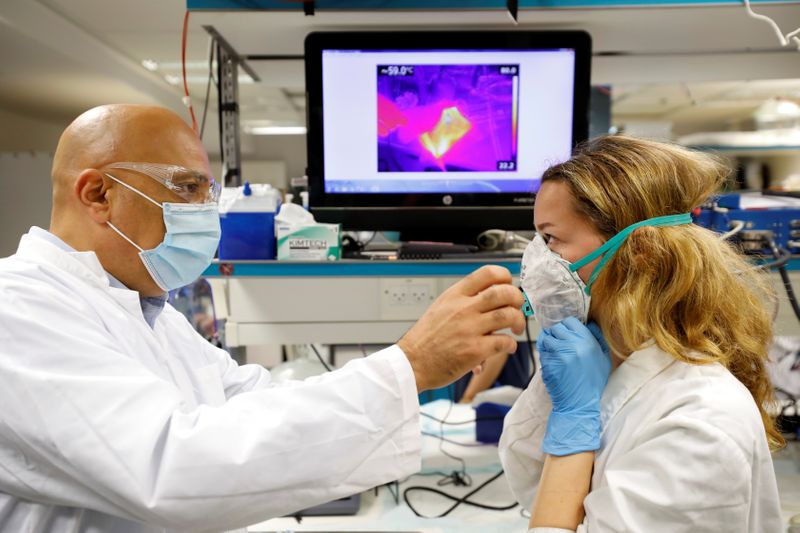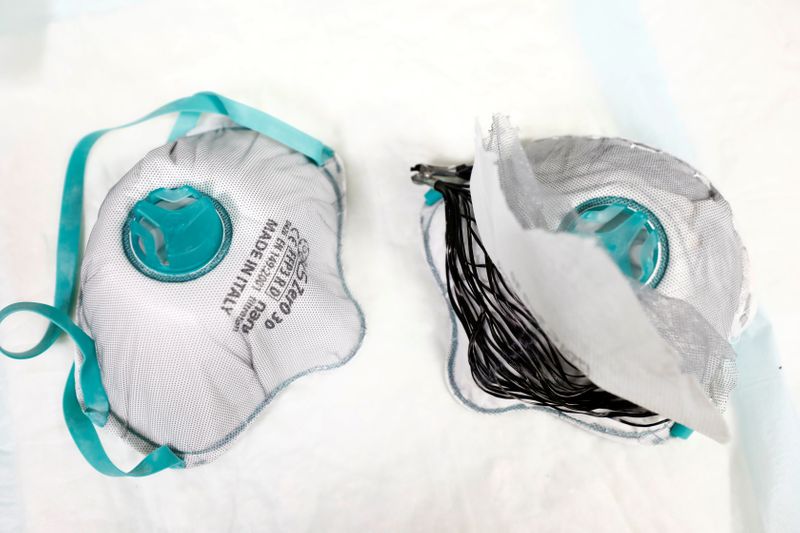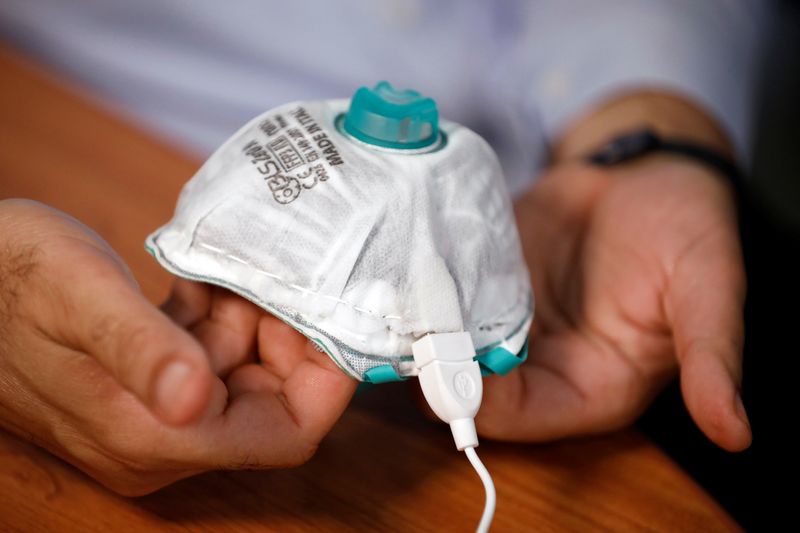HAIFA, Israel (Reuters) – Israeli researchers say they have invented a reusable face mask that can kill the coronavirus with heat by drawing power from a mobile phone charger.
The disinfecting process takes about 30 minutes – and users should not wear the mask while it is plugged in, said Professor Yair Ein-Eli, who led the research team at Technion University in Haifa.
The new mask has a USB port that connects to a power source such as a standard cellphone charger that heats an inner layer of carbon fibres to 70 degrees Celsius (158 Fahrenheit), high enough to kill viruses.
Ein-Eli said disposable masks, in high demand globally during the health crisis, were not economically or environmentally friendly.
“You have to make it reusable and friendly, and this is our solution,” he said.
Professor Allon Moses, an infectious diseases expert at Jerusalem’s Hadassah Medical Center, said there was “no question” that a half hour’s exposure to 70-degree heat would kill the coronavirus.
But he cautioned that repeated heating could “damage the mask’s paper or fabric and spoil its ability to protect from diseases in the future”.
During testing, the prototype was exposed to 20 heating cycles, each for half an hour, with no impact on durability, Ein-Eli said.
“We can guarantee it up to a few dozen cycles, without any risk,” he added.
The prototype looks like a standard N95 face mask, with a valve at the front and bands to hold it in place around the head.
The researchers submitted a patent for the mask in the United States in late March and say they are discussing commercializing the product with the private sector.
It will likely sell at a $1 premium over the price of a typical disposable face mask, the researchers say.
(Reporting by Rami Amichay with additional reporting by Rinat Harash in Jerusalem; Writing by Rami Ayyub; Editing by Jeffrey Heller and Raissa Kasolowsky)


